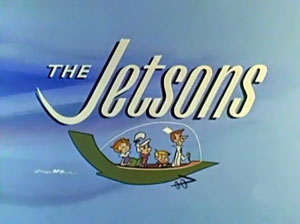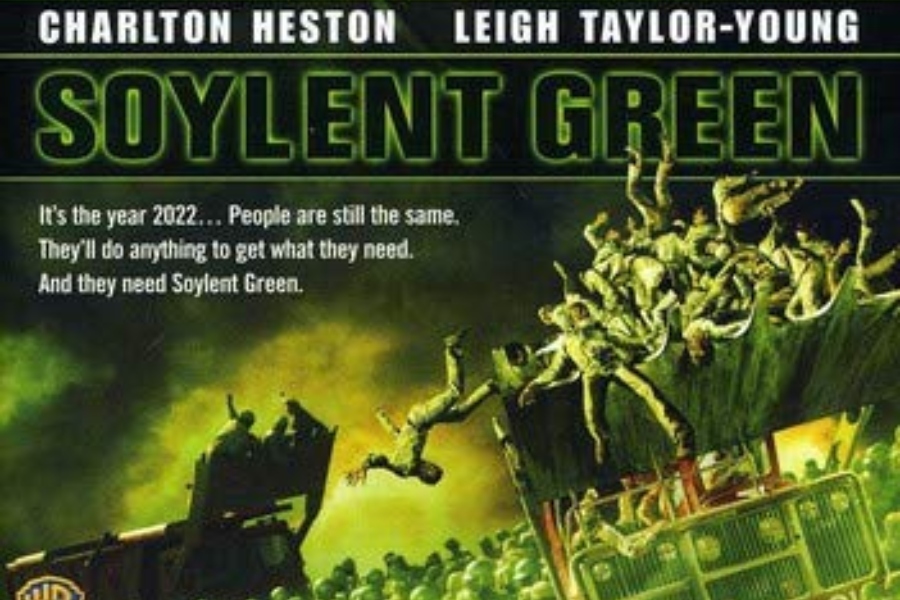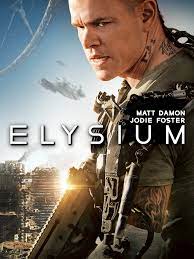
The year is now 2022. Or for those who prefer a broader view, 12022. But regardless of what calendar you prefer, our soggy, muddy ball of rock has completed another lap around that giant mass of compressed gas we call the Sun. That being said, what does the future hold? That depends entirely on who you ask. There is a YouTube channel I like called Beau of the Fifth Column, which recently had an interesting presentation about this.
For fans of science fiction, the year 2022 has two associations. First, it is the birth year of George Jetson. The Jetsons portrayed a future world that was full of hope, luxury, and a lot of fun technology: Flying cars that could collapse into a carrying case, domestic robots, common interplanetary travel, and so forth. When the show was created in 1962, that was how the creators saw the world in 100 years. Granted the world wasn’t perfect, and some even considered it a technological dystopia. George hated his job, much of life’s drudgery continued as always (just with fancier technologies), and corporate nastiness was as rampant as ever.
But on the whole it was an optimistic view. World hunger, economic inequality, and other social problems were either resolved or were at least no worse than they are today. And some of the fancy technology we see in the Jetsons has come to pass. For example, supercomputers the size of a wristwatch aren’t far removed from our smart phones and notebook computers. But I don’t think we will have flying, transformer-esque cars, or common interplanetary transport, by 2062. And I certainly don’t think we’ll have our various social and economic problems under control by then.

The year 2022 has another association. It is the year in which the 1973 dystopian movie Soylent Green is set. In that world, unregulated capitalism has created the largest contrast between rich and poor imaginable. Only the very wealthy can afford actual food, as even the most common vegetables cost more than a month’s wages. Most people have to survive on a concoction of algae and proteins called Soylent Green, and the proteins for the mix come from human flesh. It’s a nicely packaged form of cannibalism. This was definitely not an optimistic view of the future.
Which future vision is more likely you ask? In my opinion, neither one. The Jetsons represent a vision of the future that has become laughably naive. As much as I would like to say the world has a bright future on a scale the Jetsons portrayed, I simply can’t see it happening. But I don’t foresee a Soylent Green future either. Unfortunately, what I do see is perhaps even darker.

What I see resembles a different science fiction film, Neill Blomkamp’s 2013 film, Elysium. In that film, the world is in shambles. The environment is dying, pollution is out of control, overpopulation is a global problem, nearly every type of resource is scarce, and the list of social problems is too long to recite. But all of these problems are willfully ignored by the people who are able to do anything about them.
Those people, who were the wealthy and privileged, lived on a spectacular orbital habitat called Elysium. On Elysium, people generally lived comfortable, almost idyllic lives. Food was plentiful, the environment was well managed, and services like health care were plentiful and easy to obtain. The population of Elysium was around 200,000, but while the rest if humanity – which numbered in the billions – lived in poverty and squalor on decimated Earth.
And there was no serious attempt to change or even address this inequity. The totality of all human activity was focused on maintaining and improving Elysium. Education, infrastructure, public health, and almost any other issue you can think of was of secondary importance. The bare minimum of resources were used to keep the communities of Earth functional enough to fulfill their obligations to maintaining Elysium, with everything else going to the orbital habitat itself. Even food production favored Elysium, resulting in food shortages all over Earth. It’s not unlike what happened in Ireland during the potato famine of the 1840’s.
Many people on Earth aspired to move to Elysium, but between the draconian immigration laws, and the extreme inequity of wealth, they never got a chance. If you wanted to live on Elysium, you pretty much needed to be born there. The movie went into the details somewhat, but the gist was that if you lived anywhere other than Elysium, there really was no way to improve your life. And your wisest choice was to simply accept that and stop complaining.

At one point the main character looks into the late afternoon sky, which is usually hazy from pollution, and could see the Elysium habitat spinning in the sky. A number of people are looking wistfully at the star-shaped structure, and are miserable. Elysium was the ultimate gated community, and the people who lived there did everything they could to make sure it stayed that way. At another point someone tries to sneak aboard the habitat to get their daughter some life saving medical treatment. They were met with gunfire. If you don’t live on Elysium (i.e. are extremely wealthy), you are denied many of the necessities of life.
How is this worse than Soylent Green? In Soylent Green there was an attempt to meet the demands of growing food shortages. It was a totally disgusting solution, but it was still a solution. In Elysium no such attempt is made. Addressing the problem would require diverting resources from Elysium. It was considered better to allow millions on Earth to starve than force some of Elysium’s citizens make do with slightly less.

There is one very telling moment during the climax of the film. Jody Foster’s character was definitely one of the “bad guys.” Early in the film, when she was questioned about the living conditions on Earth, she responded with “when one of them stands up, five of us fall down.” When she is mortally wounded during the final battle, she refuses medical treatment. She preferred to die rather than live in a world where her privileged position would change.
I think her attitude is reflective of many in our current society, and why the future looks potentially bleak. The very wealthy are doing everything they can to make sure that the status quo remains exactly the way it is. The cost to society, the environment, and anything else that doesn’t lie within their “gated community,” is of little or no importance.
The movie itself showed some excellent world building, and of creating a social situation worthy of Philip K. Dick. But it doesn’t have a convincing ending. Everything is wrapped up too quickly, and in an unconvincing way. But the social situation it portrayed was disturbingly realistic and far too plausible. I’ll probably go into this more in a later post, but suffice to say that the future I foresee resembles the one portrayed in Elysium.
All I can say is that I dearly hope I’m wrong.
